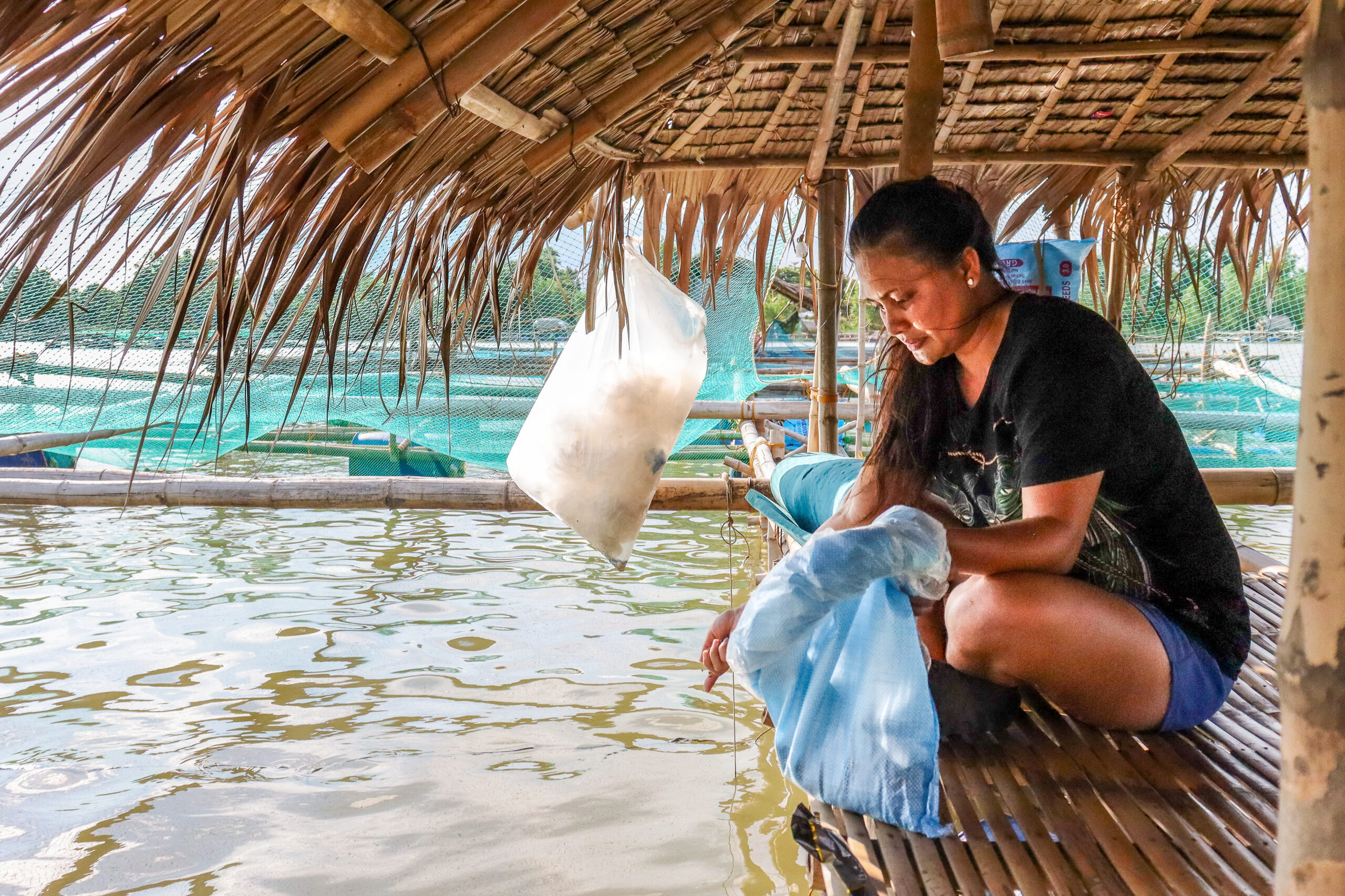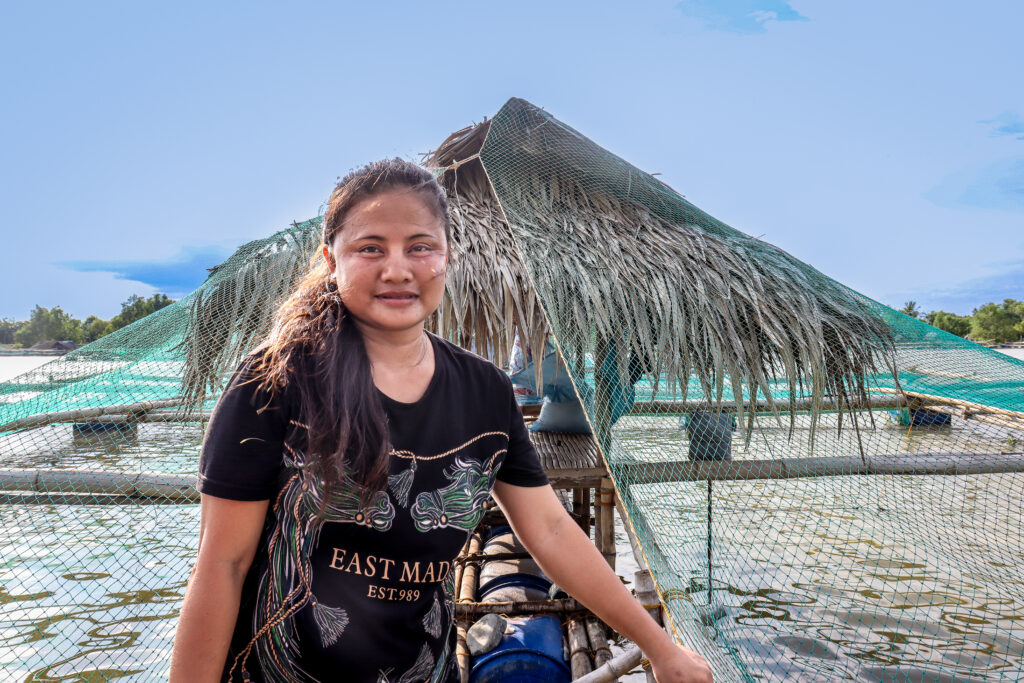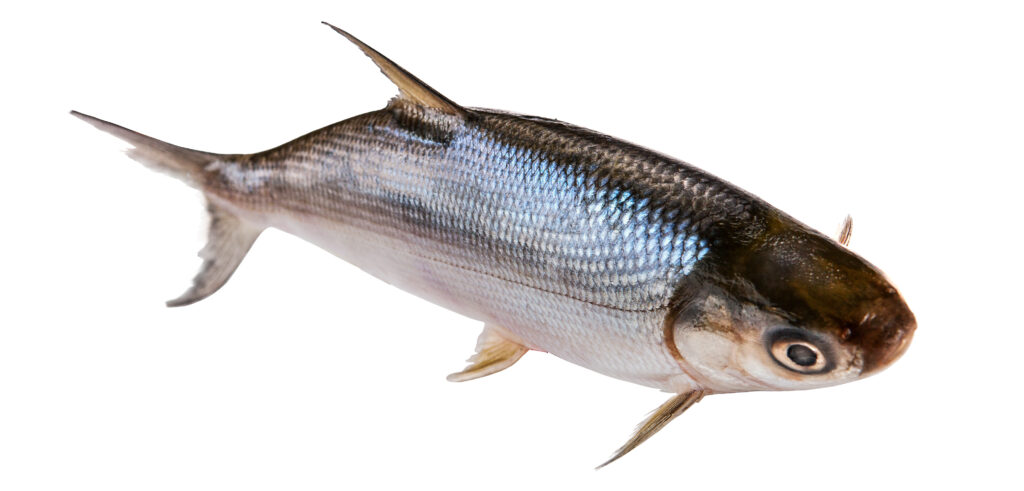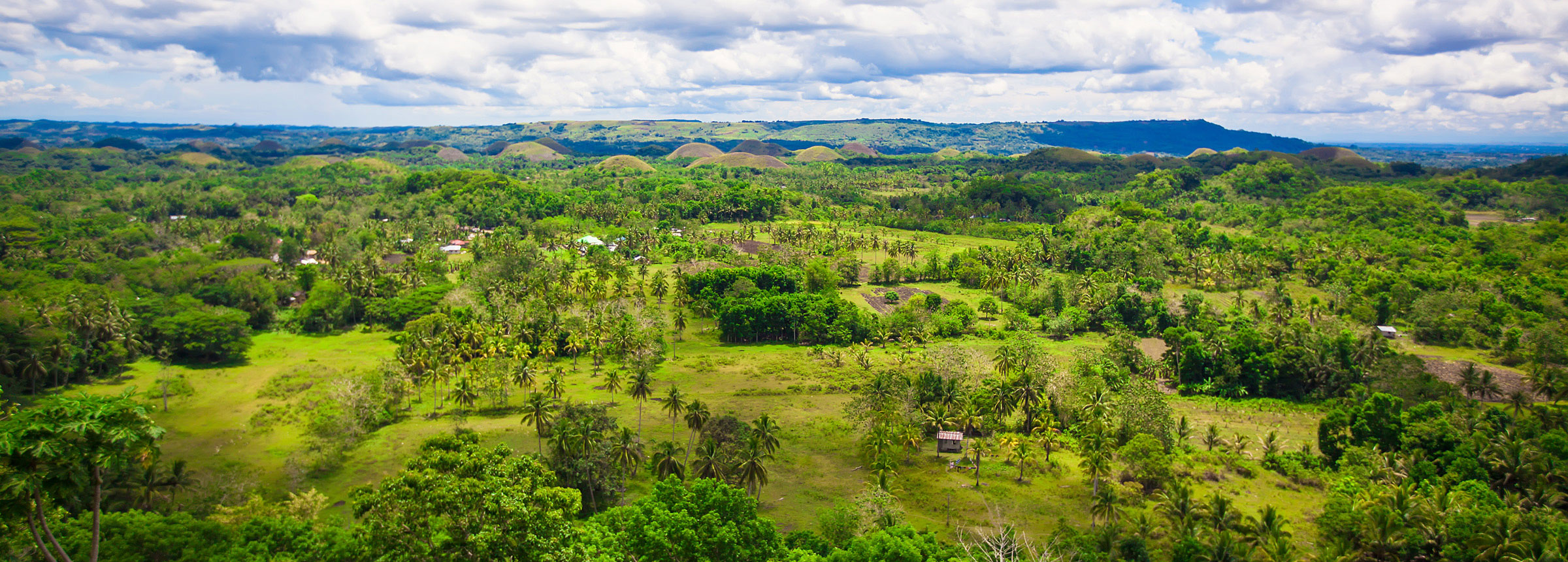
Transforming livelihoods through improved access to finance and aquaculture
Arlene Lim spent years laboring at a shipyard in Subic, Philippines, putting in grueling hours with frequent overtime shifts. But life changed when the COVID pandemic forced the shipyard’s closure. With little savings, the 31-year-old Lim and her family left Subic, returning to their hometown of Dagupan City, known as the “Milkfish Capital of the World.” Lim then decided to venture into aquaculture, trying her hand at raising the delectable, in-demand fish. Called bangus in Filipino, milkfish are both commercially valuable and prized for their mild taste and texture.
Lim obtained a loan from a community financing organization and used it to start her new small business. While the early signs were promising and Lim diligently repaid her loan in installments, the weekly payments became increasingly burdensome.
“There were times when I had to choose between buying food or paying my dues … when we just ate once a day,” Lim shared. “I did not want my children to experience that ever again.”
Lim and her husband then learned about a local cooperative supported by a grant program through the U.S. Department of Agriculture’s Building Safe Agricultural Food Enterprises project implemented by Winrock International. The Lims met Isagani Nicolas, chairman of the Intensified Strategies for the Development of Agri-Fisheries Agriculture Cooperative. The co-op supports local communities in part by offering low interest loans and flexible repayment options to fish farmers.

“When we received the grant from B-SAFE, we were able to offer our members a discounted price of fish fries,” Nicolas said, referring to the just-hatched or pre-fingerling stage of the fish.
In addition to improving access to affordable financing, B-SAFE supports local fish farmers by delivering training on a range of aquaculture best practices. The grant-funded loan program proved highly effective ─ in part because it enabled the co-op to reissue loans to other members after earlier borrowers repaid their dues.
“This approach created a multiplier effect for us, resulting in more members benefiting from the program,” Nicholas said, adding that the system is helping to ensure the sustainability of the cooperative.
As a member of ISDA-AC with an already good repayment record, Lim secured a new loan that enabled her to invest and expand her farm.
Fry production and sales are now providing additional income for Lim’s family, enabling her to reduce input costs. After the fry turns into fingerlings, farmers like the Lims can sell as much as half of their production to other operators. Remaining fingerlings stay in grow-out cages until the fish reach the desired size for harvesting. The co-op loan and terms enabled Lim to repay the loan soon after her milkfish harvests, instead of having to submit weekly payments, as she did previously.
“I don’t have to pay every week. We can also eat more than three times a day,” Lim said. The change has had a big impact on the family’s livelihood – and provided welcome relief from the worry and stress they experienced previously.

B-SAFE focuses on enhancing food safety in milkfish production, as well as in the coconut sugar, corn and swine value chains. Collaborating with the Philippines Department of Agriculture and the country’s Food and Drug Administration, B-SAFE helps to improve food safety policies, prevent foodborne diseases and enhance livelihoods.
Through the grant-funded loan program and the trainings offered by B-SAFE, Lim said she gained insights into the use of new technologies and practices, fish survival rates, pricing, production levels and quality control. That new knowledge has led to a remarkable increase in her operation’s milkfish survival rates and profitability.
“I learned a lot from the training, like how to price the milkfish we harvested, as well as to always observe the water level to ensure higher survival rate for our fish fries,” she shared.
In two years, Lim has expanded her farm from a single cage to four, and now employs some of her relatives to manage the operation. After attending training organized by B-SAFE and ISDA-AC in best practices, her farm’s milkfish survival rates increased from a range of 30-45% to a 45-60% rate, resulting in increased profits of 30-40% compared to her startup year in 2021.
“When I was working in the shipyard, I just wanted to ensure my children were healthy and safe and I could send them at least to high school,” Lim said as she reflected on her journey. “But after two years of good harvest and with the support of ISDA-AC and B-SAFE, I am excited and happy that I can now afford to give them a brighter future.”
For more information about Winrock’s USDA-funded work supporting aquaculture in the Philippines click here; for information about Winrock’s aquaculture work in Bangladesh, click here: Safeguarding Bangladesh’s “white gold”.
Related Projects

